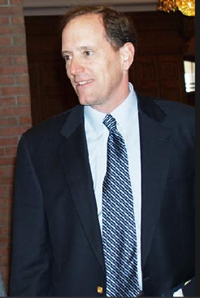Last night’s Republican victories should make life easier for the industry in some respects – committee chairs with a pro-business bent and fewer subpoenas for CEOs to testify at inquests into industry evildoing, for example — but first some sweet talk is in order.
“There are some fences to be rebuilt,” said John Kamp, executive director of the Coalition for Healthcare Communication. Like their animal totem the elephant, Republicans have long memories, and many haven’t forgiven the pharmaceutical industry for working with the White House on healthcare reform. Last year, presumptive Speaker of the House John Boehner (R-OH) blasted the industry, saying: “When a bully asks for your lunch money, you may have no choice but to fork it over. But cutting a deal with the bully is a different story, particularly if the ‘deal’ means helping him steal others’ money as the price of protecting your own.”
Boehner said this morning that Republicans “have to do everything we can to try to repeal this bill and replace it with common-sense reforms that will bring down the cost of health insurance,” though any effort to repeal the Patient Protection and Affordable Care Act would surely meet with a veto even if it somehow passed through a Democrat-controlled Senate. Red meat for the base, perhaps, but the Republicans could pick away at the law by defunding some provisions.
Healthcare reform was conspicuously absent from a statement on the elections from PhRMA CEO John Castellani that was released this morning, instead congratulating the victors and focusing on the jobs provided by the industry.
“When it comes to medical innovation, our nation is at a crossroads,” said Castellani, “and it’s up to our leaders to decide what path they want to take. Do they want to support the innovative engines that fuel America’s economy, or do they want to let other countries win the race for knowledge, jobs and growth in the science field?”
A PhRMA spokesperson noted that polling showed the economy to be far and away Topic A on voters’ minds.
“When Boehner gave that speech last night, his focus was on the economy and jobs,” she said. “Clearly, healthcare reform is an issue, but the top issue is the economy, and that’s why we paid attention to that.”
For now, she added, PhRMA is focused on “implementing and improving” the legislation. A particular concern of the group is a provision of the law establishing an independent Medicare payment advisory board, appointed by the president, whose recommendations for cost cuts to the program go into effect automatically unless Congress passes a bill making alternative cuts. PhRMA waged a furious but unsuccessful effort to get drugs exempted from the board’s purview. It’s one area where the industry might have better luck with the new Congress.
Rep. Dave Camp, who represents a swath of north-central Michigan, is said to be a lock to chair the powerful Committee on Ways and Means, which holds the purse strings in the lower house. A three-way battle is brewing over who will take the chairmanship of the Committee on Commerce, previously held by industry arch-nemesis Henry Waxman (D-CA). In the mix are Reps. Fred Upton of Michigan, Cliff Stearns of Florida and Joe Barton of Texas.
“Waxman’s people are still in HHS and FDA,” said Kamp, “so he will have power even though he’s not the chair.” Still, coupled with Sen. Chuck Grassley’s move over to the Committee on the Judiciary from Finance, where he was a constant thorn in the industry’s side, it means far fewer hearings on drug marketing practices.
Despite the Republicans’ generally pro-business and anti-tax slant, Kamp said the drug industry will likely have to defend the tax deductibility of marketing costs as Congress looks for ways to lower the deficit without raising taxes on individuals.
“No member wants to go into the next election having raised taxes on individuals or cut entitlements,” said Kamp. “Every revenue option ever considered will be back on the agenda this year, and this is clearly one that will be considered.”
Meanwhile, there are dozens of fresh faces for industry lobbyists to educate.
“Last year, it was the Blue Dog Dems that pulled us out,” said Kamp. “Many of them lost. We’re going to have to work with a new group of moderates from both sides to ensure that this tax on industry doesn’t pass.”







